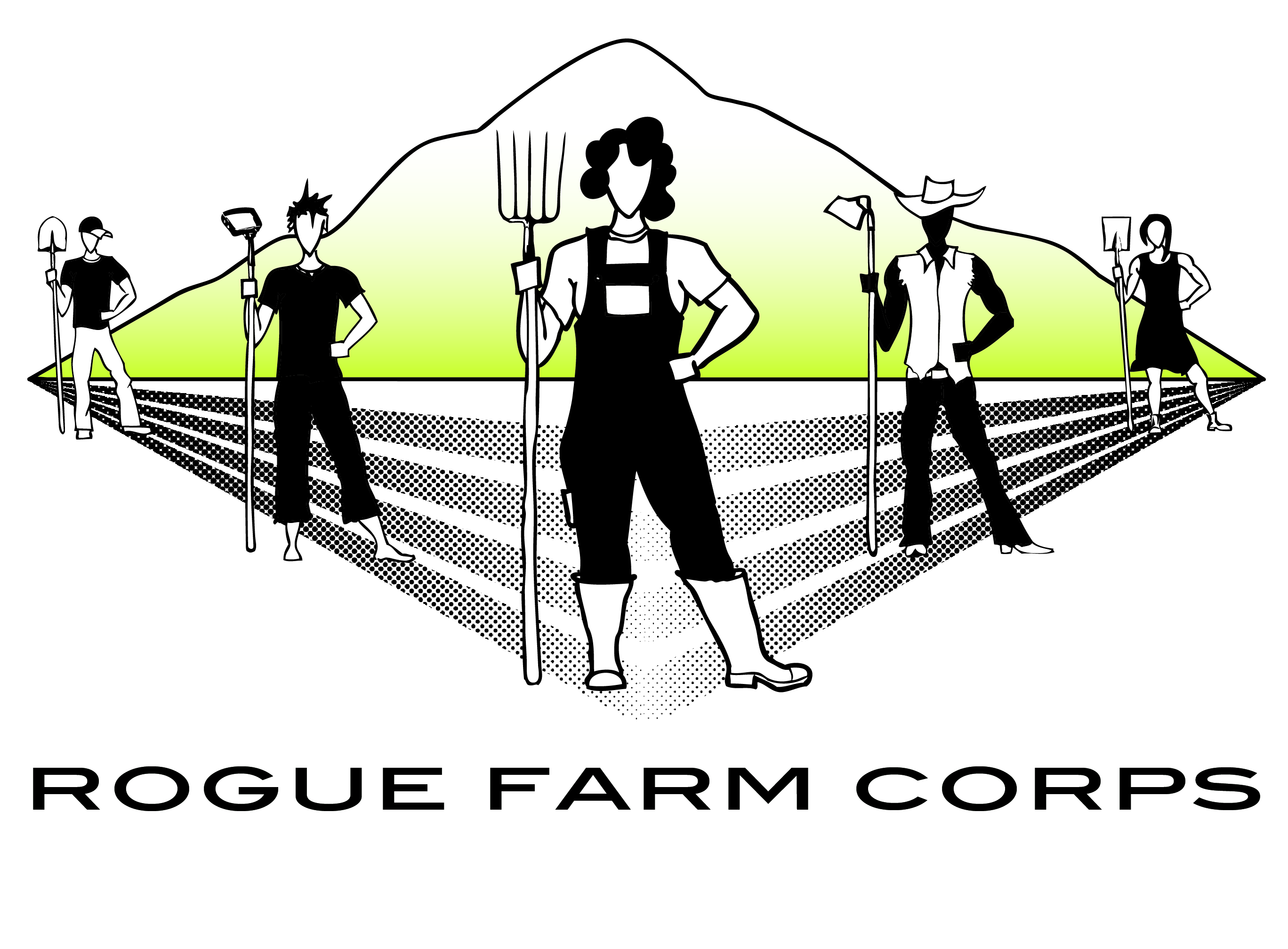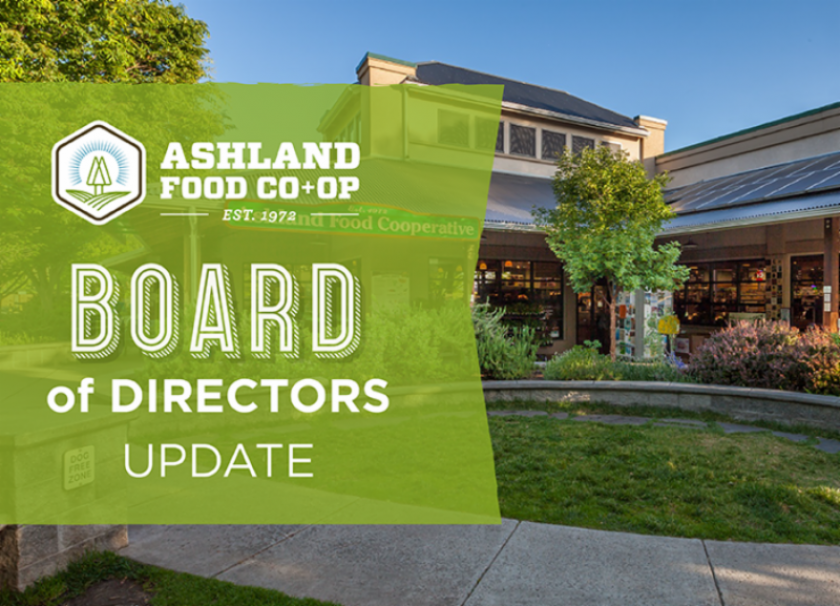
From the Board: Co-ops Look in the Mirror
By Annie Hoy, Board Secretary and Chair of Owner Engagement Committee
Food Co-ops around the nation proudly display signage saying EVERYONE WELCOME. Or they use the slogan, “Anyone can shop. Anyone can join.” But are food co-ops, and other cooperative businesses, walking the walk?
The double calamity of a pandemic and civil unrest has helped cooperatives in every economic sector see inequities more clearly. They have become a central focus of entire conferences, both internationally and in the food co-op sector specifically. Diversity, Equity and Inclusion in relation to the co-op movement is under review and committees have formed in credit unions, housing co-ops, worker co-ops, platform co-ops and of course, food co-ops. It can be uncomfortable work. But getting to liberation is uncomfortable, as many of our brothers and sisters of color have known for centuries.
The co-op movement’s statement of purpose says that co-ops are jointly owned by the people who use their services. There are universal people-centered principles like concern for community, autonomy and independence. Co-ops are democratically controlled, and guided by values like democracy, equality, equity and solidarity, as well as self-help and self-responsibility. But if you graded co-ops on diversity, equity and inclusion, you might find that the movement has an uncomfortable problem.
Jessica Gordon Nembhard, in her keynote address at October’s international Co-op IMPACT conference, began her speech with a mythbusting question: Co-ops can’t be racist, right? She then noted the small number of black, brown and indigenous bodies in the room. She described how co-op development materials never mention the rich history of black or indigenous co-ops across time. She challenged us to recognize the ways we might perpetuate institutional racism, or what we do if we see racist microagressions and exclusion in our co-ops. She urged co-op leaders to rely on Principle 6, Cooperation among Cooperatives, to create a solidarity economy that practices social justice, no matter what sector of the co-op economy you represent.
In the food co-op sector, and at Ashland Food Co-op, we are engaging in conversations about what community means and who is part of that community. Is everybody really welcome? And if not, how can we address that?
More Co-op News
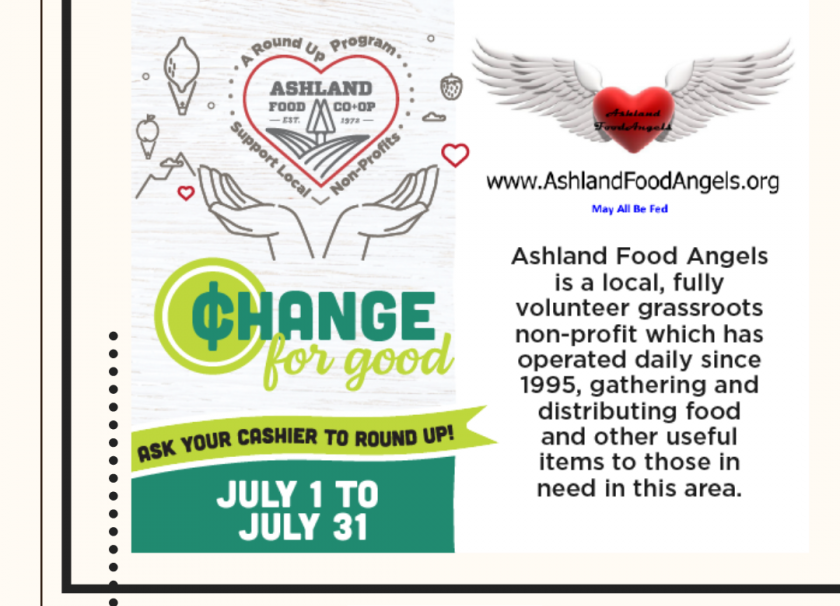
July Change for Good Partner: Ashland Food Angels
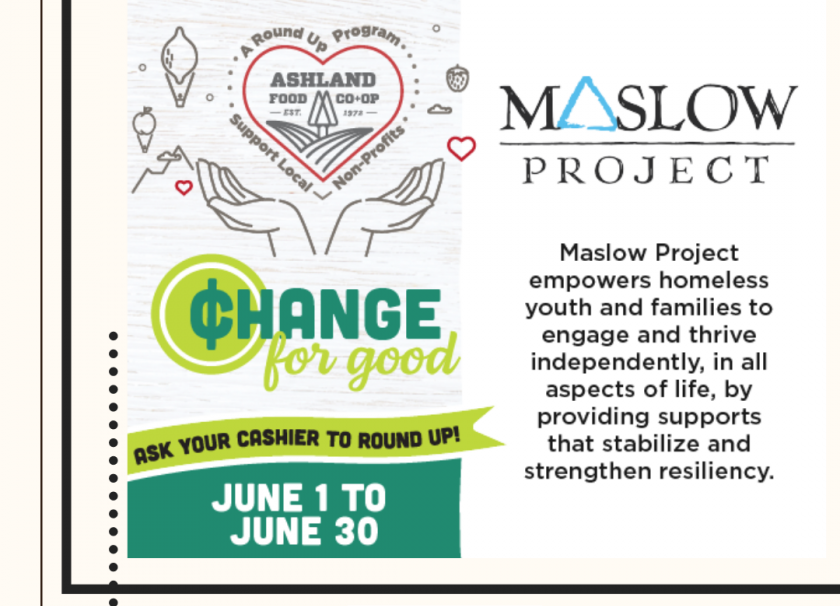
June Change for Good Partner: Maslow Project

Celebrate Ashland Food Co-op's 50th Anniversary
Ashland Food Co-op has been a staple in our community for 50 years and invites you to celebrate this anniversary with them on June 3rd, 2022 from 5:00 PM-8:00 PM, at the AFC employee parking lot for dancing, food, face painting and more!
Music by Eight Dollar Mountain and Wild and Blue.
Siano's Karibbean Cookhouse, Walkabout Brewing Co. and Rogue Kombucha will be joining us with delicious food and beverages available for purchase.
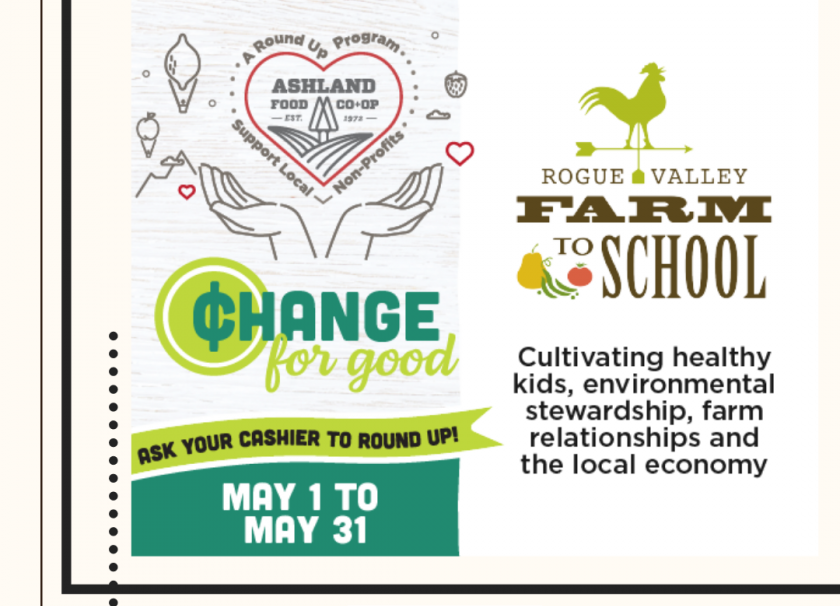
May Change for Good Recipient: Rogue Valley Farm to School
Open House Hiring Event
The Ashland Food Co-op is excited to provide employees with a fun, professional workplace with potential for growth and advancement. We see every day as an opportunity to better our community, our planet, and ourselves! Eligible employees will receive a 15% employee discount on all store purchases, affordable healthcare, 3.5 weeks of paid time off in your first year for vacation and sick days, matching 401K plan after 1 year, productivity and profit sharing bonus opportunities, free organic produce every day... and so much more!

Standing with Democracy
Our Community Food Co-op has joined, along with other co-ops across the nation, to donate to a Disaster Recovery Fund organized by National Co+op Grocers (NCG) Cooperation, Cooperative Development Foundation (CDF) and National Co-op Business Association of the United States (NCBA CLUSA) to Co-op Ukraine to support cooperatives impacted by the war in Ukraine.


Thank you for 50 years.
Celebrate our anniversary with us!
June 3rd, 2022 at the Ashland Food Co-op:
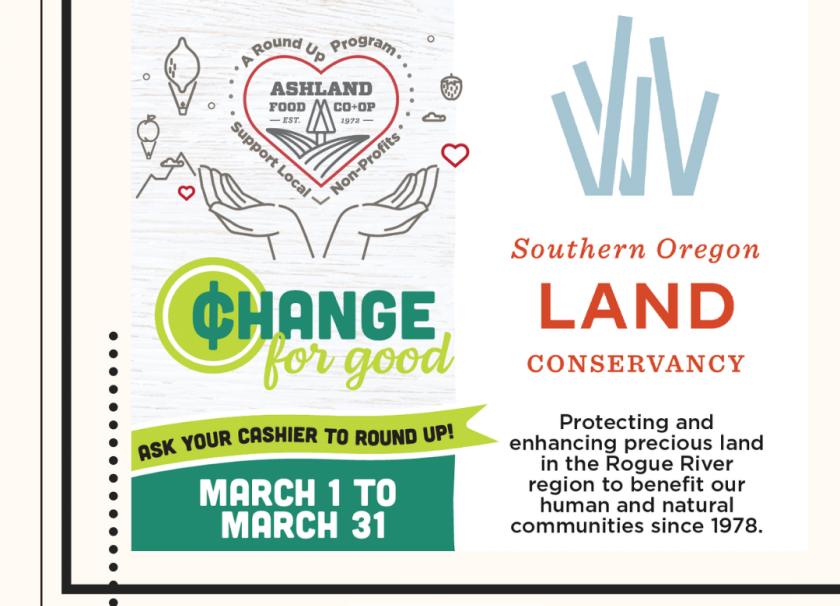
March Change for Good Partner: Southern Oregon Land Conservancy
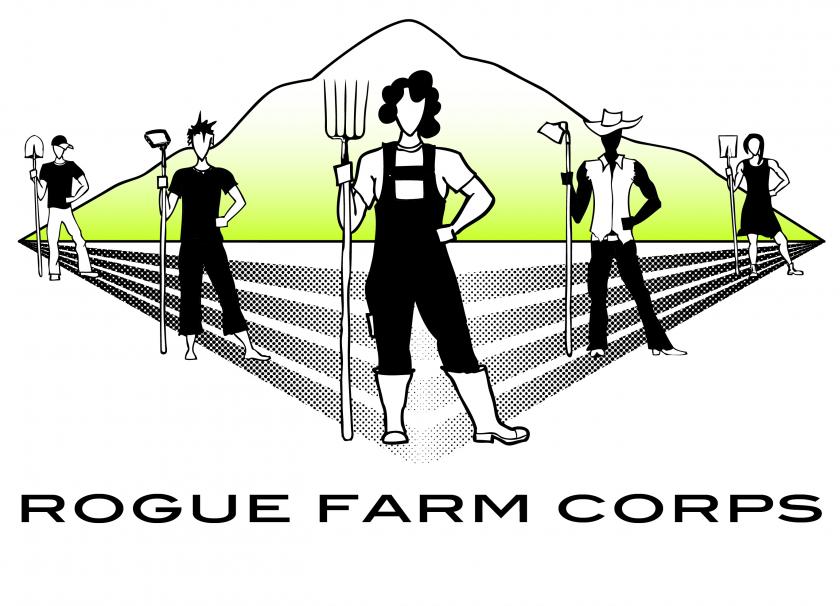
February Change for Good Partner: Rogue Farm Corps
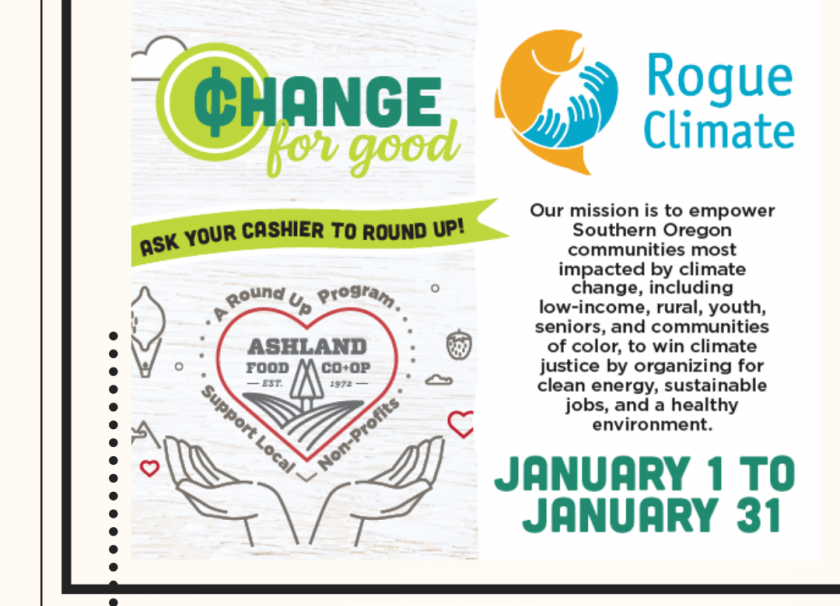
January Change for Good Partner: Rogue Climate
January's Change for Good Partner is
local nonprofit Rogue Climate
Rogue Climate was founded in 2013 in the Rogue Valley of Southern Oregon.
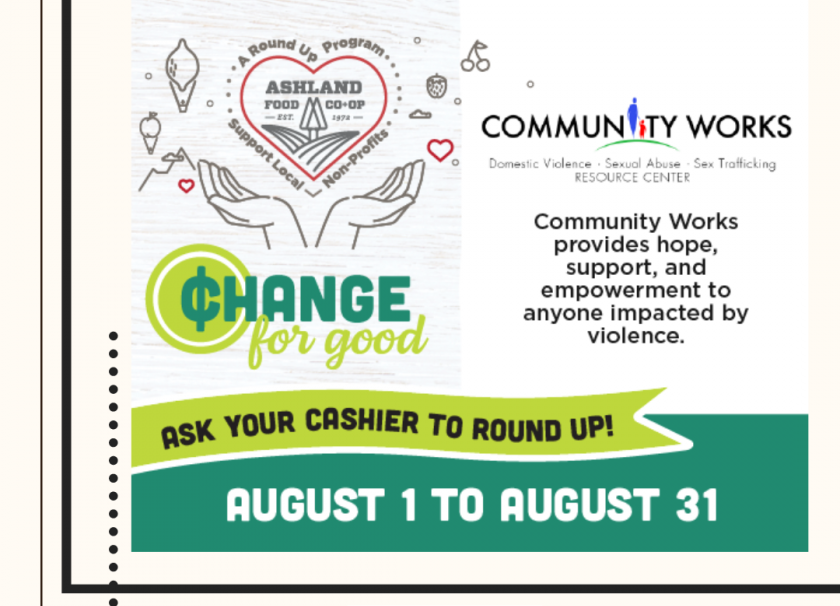
August Change for Good Partner: Community Works
August's Change for Good Partner is

November Change for Good Partner: Southern Oregon Climate Action Now
November Change for Good Partner: Southern Oregon Climate Action Now
November's Change for Good Partner is


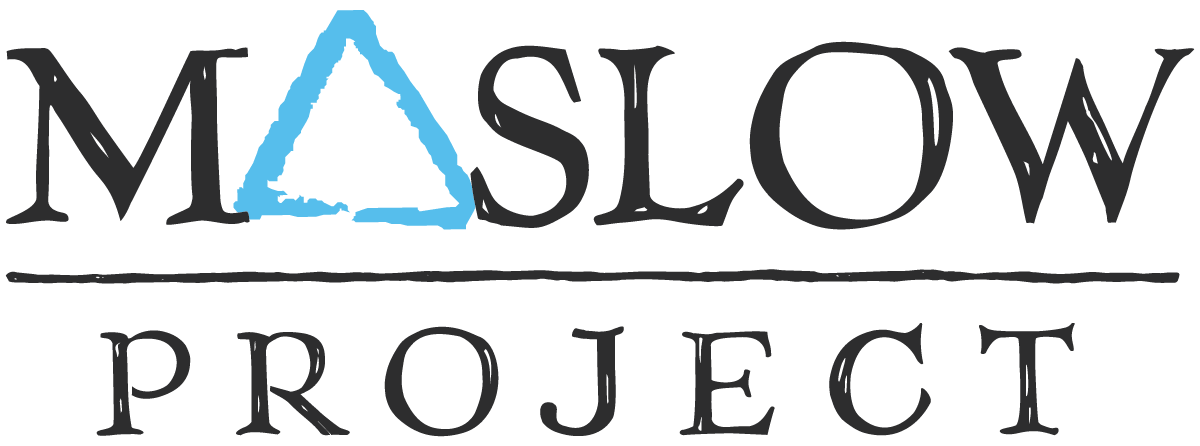
.png)
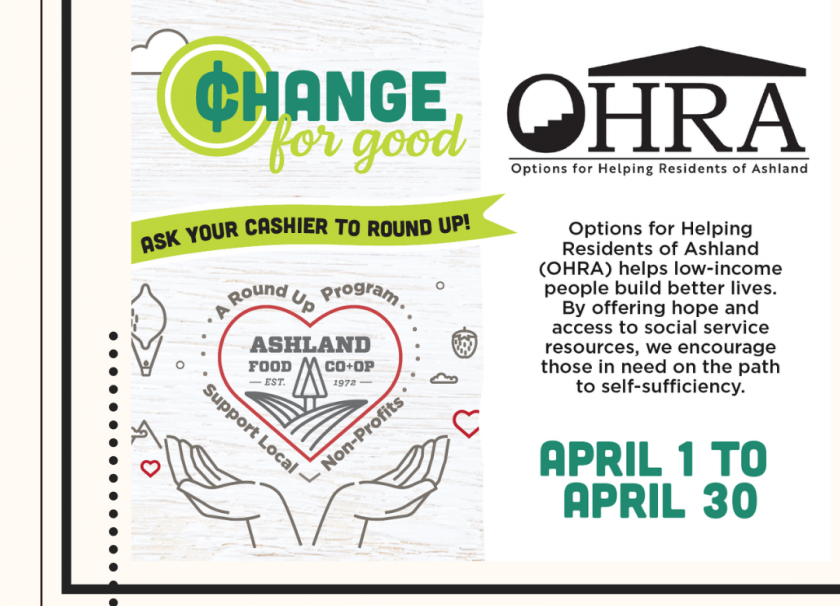
.jpg)

